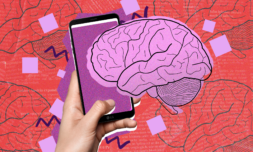Though scrolling on social media gives us the short-term dopamine hits we crave, ceaseless overexposure to tragedy means that many of us have developed a guilt complex. To combat this, we’re increasingly switching off in the name of self-care, but what if we redirected that to bringing about tangible change and helping others the way we’re helping ourselves?
Without doubt, social media is having detrimental impact on our mental health.
Studies suggest that overusing Facebook causes anxiety and depression and links have been discovered between endless scrolling and a decline in wellbeing over time – particularly among Gen Z.
As is often the case with any addiction, however, statistics such as these are unlikely to hit home.
It’s also improbable that they’ll encourage us to question how reliant we are on these platforms, in part because they’re so ingrained into our daily lives and society at large.
I for one can hold my hands up and say that I look forward to getting into bed at the end of the day for a sleepy scroll before I drop off.
In the weird nexus of parasocial relationships many of us are firmly ensconced in, there are certain content creators I know I want to check up on while I do.
I want to see if they’ve posted any more fun-sounding recipes for me to try, whether there’s any more thought provoking analyses of the manosphere for me to absorb in my echo-chamber of feminism, or, and I’m slightly embarrassed to admit this, to have a quick look at what they’ve eaten in a day because I’m now so used to ‘caring’ about what that entails.
Is this unhealthy? Is it negatively affecting my self-image? Is it to blame for my insomnia? Possibly. But if the memes sent to me by my pals at 2am that I wake up to are anything to go by, I’m most certainly not the only one who’s confronted with this dilemma almost every evening.
doomscrolling is the worst habit in life
— ꩜ (@maxiimaliv) September 9, 2024
For so many of us, scrolling feels good in the moment because we’ve built it into our lives as a break from, well, our lives.
It’s a way to switch off, a little treat to look forward to as we try our best to stay off our phones as much as we can until the sun goes down. It’s all accessible and at our fingertips whenever we want it – deserve it, even – as an ironic reward for being disconnected all day.
Yet it’s starting to feel less and less like a hedonistic escape from reality and more like a discomforting battle with our inner monologues. Especially when the scrolling turns doom-orientated.
I realised this recently when, curled up in bed and on autopilot, I held up my phone screen to my horizontal eyeline and found my senses completely overcrowded by the 1080x 1080xp compression of the world presented to me.
A video of a cute cat, the end of Brat Summer, an ad to donate to Medical Aid for Palestinians, snaps from a celebrity’s holiday, an advert for a sustainable yoga leggings brand, a post from a lefty news publication about a general strike in Israel – the list goes on.
Rather than satisfying my superficial need for an internet-induced hit of dopamine, tapping through the mollification of devastating updates on what’s happening across the globe – which are too often interspersed between sponsored content and photo montages carefully crafted to appear carefree and whimsical – is increasingly leaving me horrified.




















